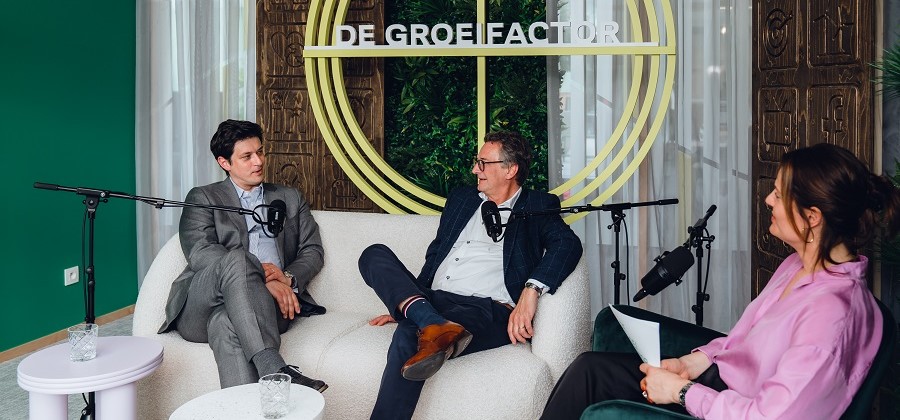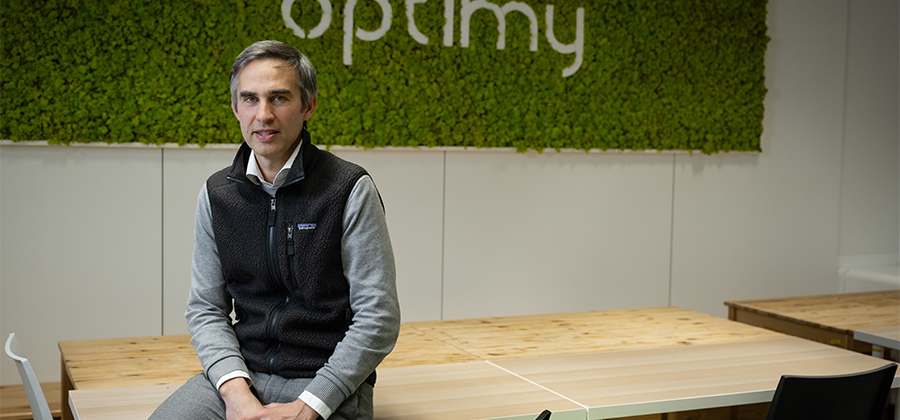2016 has seen many new developments: an uncertain global economy, the shock of the American presidential election and disruptive technological innovations. These solutions will optimise your supply chain in 2017.

Get closer to the authorities and governments
While most of the world's resources are in the hands of the private sector, the concentration of industries makes managing a large number of factors, such as the environment, performance, ethics or even society's expectations more complex. Throughout the world, governments provide platforms for coordinating and facilitating supply chain operations (customs agencies, domestic security, food security, ethical resources). Nowadays, a wise supply chain manager understands the benefits of keeping close to the authorities: local economic development, transport, workforce, culture and salaries.
Go through your contracts with a fine-tooth comb
Follow the example on contract theory developed by Oliver Hart and Bengt Holmström, awarded the Nobel Memorial Prize in Economic Sciences in 2016. Their work sets out a framework for analysing all aspects of a contract: managers' remuneration based on their performance, deductibles, co-payers in insurance and even the privatisation of (some) public sector concerns. Guides are available for drafting more pertinent contracts for managing the supply chain.
Even less income, even more experiences
This trend is no newcomer, but is a growing one: when making a purchase customers are no longer satisfied with a deal in which they take all the risks. They hold the seller responsible for the promised quality of the purchased product or service (for example, a diesel car promising 62 miles to the gallon). The way ahead is the following: establish a long-term relationship with the customer based on trust and made indispensable by the growth in social networks. Managing reputation and the customer relationship become crucial factors given that consumer demands have never been so strong and/or supply chains have never been so interdependent.
Assess the value of every employee against automation
Automation affects all economic sectors. McDonald's has launched self-service order kiosks in markets where the cost of labour is significant, particularly in Europe and the United States (against the mass movement for an hourly rate of $15). If this decision involves some controversy, it begs the question: what is the impact on the supply chain managers? Labour has always been the biggest item of expenditure in the chain. For certain positions, automation enables fixed capital investment costs and fewer variable costs. The new rule is that in order to know when and where to implement automation, you need to know the value of each worker.
Make a friend of technology
Making technology work for you enables the supply chain to be successfully digitised. To this end, a combination is vital: automation and adoption of the industrial Internet of Things, along with best security practices against threats (ransomware, hacking). Intelligent initiatives will enable you to optimise the 'leagility' (a combination of the words lean and agile) of the supply chain.
09.12.2024
Managing business uncertainty with BNP Paribas Fortis
Every entrepreneur will tell you that financial markets are unpredictable, entailing inherent risks. We provide tailored solutions to protect your business as you navigate these volatile markets.
Whether you’re a small or large business, operating domestically or internationally, one thing is certain: if you enter a market and do your utmost to grow your business, sooner or later there inevitably will come a time when you expose yourself to risks. Frédéric Raxhon, Head of FI Midcap Sales, BNP Paribas Fortis Transaction Banking, is our go-to expert. Here, he explains how BNP Paribas Fortis helps customers manage this uncertainty.
Raxhon knows how market volatility can impact the daily operations of small, medium and large enterprises. Thanks to his experience of working as a banker in corporate finance, shares and derivatives, and advising holding and listed companies, he understands how the market works like no other.
Raxhon: "We are keenly aware that price uncertainty, in the form of volatility on the financial markets, can have a serious impact on the operations and profitability of businesses. That’s why we constantly monitor the markets and their volatility: if prices fluctuate sharply, our customers run the risk of buying high and selling low. The past few years are a good example of what can happen, with a sudden rise in interest rates, an energy crisis with very volatile prices, and a sharp rise in inflation. We will continue to see volatility in these markets, due to geopolitical tensions and ongoing wars. However, elections can also cause volatility, as they often cause a change in economic policy. President-elect Donald Trump has already said that he will hike tariffs on goods coming from outside the U.S., which will have an impact on global growth and inflation. The transition to a more sustainable society because of the energy transition, however positive this may be, is also a source of uncertainty. Companies will be required to make significant investments, and it is not yet clear which technologies will prevail.
All of these factors show that companies need guidance in the form of a tailor-made solution to ensure that volatile markets minimise the impact on their operations so that they can focus on their core business."
Solution-oriented
The solution to this volatility comes from a partner who is a market leader when it comes to safeguarding national and international business.
Raxhon: "At BNP Paribas Fortis, this often means managing the risks of companies that have a number of straightforward wishes: they want to conduct business on a daily basis without unnecessary complications; buy at a stable price where possible; pay wages in a stable environment; sell to customers with a profitable, stable margin, and so on. If they experience market uncertainty in their business operations, we are there to advise them and suggest solutions in different scenarios. This can range from companies that want stability when buying or selling goods in another currency, to controlling fluctuating interest rates on current or future loans, or even creating a stable financial environment in which they can steadily pay their wages. We also hedge raw materials: companies that require large quantities of energy, metal, or wheat, for example – just a few of the commodities that are subject to price fluctuations – can rely on our expertise to turn their uncertainty into certainty. When companies are calculating their budgets for the coming years at the end of the year, assumptions about budgets and costs are a factor that future markets do not take into account. This, in turn, could lead to inconsistencies in business operations during the next financial year. We regularly suggest solutions for this, which inject trust into the entire process. We help entrepreneurs make their business more resilient to market fluctuations. Because at BNP Paribas Fortis, we are always focused on finding solutions, in any given scenario."
International intelligence
Belgian companies are increasingly expanding their horizons, which is why an international perspective is so crucial.
Raxhon: "Everything is intricately connected in the economic space. The energy crisis, for example, was not a national crisis. In Belgium, electricity prices were directly impacted by the drop in nuclear power production in France in 2022. The American elections have a direct impact on international business, with anxiety gripping investors and the markets. And I can give you many more examples.
Moreover, we expect this interdependence and volatility to continue for quite some time: there are a large number of economic and global trends that are feeding this uncertainty. And that is why it is so important that we keep up with developments in this uncertain global environment. At BNP Paribas Fortis, we rely on a global network of experts who are always on the lookout for the latest updates. Whatever happens and wherever it happens, there are always people from our bank on the ground who monitor the situation and provide us with real-time advice on how best to inform our customers. This network has proven its worth time and again, both for us and our customers."
10.06.2024
Electronic invoicing between companies to become mandatory
The bill to introduce this obligation in Belgium has been submitted to the Federal Parliament. If the draft bill is approved, B2B e-invoicing will become mandatory from 1 January 2026. Our experts explain why Belgium wants to introduce these new rules, what the implications are for your company and how we can better support you.

“The bill is consistent with international developments and initiatives at the European level,” says Nicolas De Vijlder, Head of Beyond Banking at BNP Paribas Fortis. "Europe's ambition is a harmonised digital standard. Structured e-invoicing between companies will also reduce the administrative burden of invoicing, enabling companies to work more efficiently and increase their competitiveness. The automation of VAT declarations will also help governments prevent tax fraud and adjust economic policies based on more qualitative data.”
Evolution rather than a revolution
“The new legislation is an evolution rather than a revolution,” adds Erik Breugelmans, Deputy Managing Director at BNP Paribas Factoring Northern Europe. "Digitalisation is becoming pervasive at all levels of society, as we have seen with the increase in electronic payments, as well as the additional obligations in recent years regarding electronic invoicing to the government. In this sense, the bill for mandatory electronic invoicing between companies is a logical next step. Our bank is happy to contribute to this process, although we do not intend to offer the same services as accounting software or fintechs. However, we are happy to help our customers with payments and financing."
The impact on businesses
“Customers need to be aware that the new regulations will have an impact on their internal and external processes,” continues Erik Breugelmans. "The majority of Belgian companies mainly serve an international market, which means that the introduction of electronic invoicing will be more complex for them than for companies operating in the domestic market. As the legislation will be introduced in one go, they need to start preparing now."
“The new rules will affect a company’s accounting department as well as its IT department,” emphasises Nicolas De Vijlder. "The procedural requirements are key, otherwise the automated process will not work. However, one of the main benefits of advanced automation is that everything can be done faster and more efficiently. The time between sending an invoice and paying it will be shorter and cash flows more predictable. In addition, it will also reduce the risk of error and fraud, as all transactions will pass through a secure channel."
Ready to offer you even more and better support
“Thanks to the far-reaching digitisation resulting from the new regulations, we will be able to further optimise payments,” concludes Erik Breugelmans. "As a bank, we need to finance our customers’ receivables as quickly and efficiently as possible, so that they have easier access to their working capital. In addition, because we have already gone through an entire process in terms of large-scale automation, we will be able to adapt quickly to the new rules. We can also draw on the expertise of the BNP Paribas Group, which is currently developing an e-invoicing solution for large companies."
Want to know more?
Listen to the episode on B2B e-invoicing :
02.05.2024
“Our focus is on people and trust”
Can a fashion company be successful even if it forgoes the excesses of fast fashion? Definitely, as Jean Chabert proves with Stanley/Stella, which produces custom-made clothes from organic cotton.
“We want to be a game changer,” says Jean Chabert, CEO of Stanley/Stella. "When I was born 62 years ago, 2 billion people were living on our planet. Today there are 8 billion. That’s the reality, so we need to stop depleting resources. Human activities always have consequences, but we must constantly strive to improve. That’s our commitment, and we enshrined it in a charter in 2022. We monitor our entire ecosystem and focus on people and trust."
Clothing as a means of communication
The B2B company from Brussels sells clothing that serves as a means of communication. Stanley/Stella customers have T-shirts, sweatshirts and hoodies printed or embroidered and they offer these personalised items to their own customers. "We're in a giveaway industry, and our prices are at least 50 per cent above the average. But we offer superior quality and respect for people," says Chabert.
Organic cotton: half the water
15 of the 220 Stanley/Stella employees are directly or indirectly involved in Environmental, Social, Governance (ESG) activities. For example, they check that agreements on working conditions and safety at the production sites are respected. The company buys its organic cotton, produced without Genetically Modified Organisms (GMOs) or pesticides from India, Tanzania and Turkey - it uses 70 per cent less water than conventional cotton. Stanley/Stella has also made long-term commitments throughout the production chain to minimise any negative impacts on people and the environment. For example, 90 per cent of containers arrive at the warehouse in Germany by inland waterway, the least polluting form of transport.
Considering all the impacts
“Of course, we have to remain realistic,” Chabert adds. "Companies that want to be viable must also remain profitable. By definition, we use resources to make textiles. So, we consider all the impacts. For example, we continue to operate our textile decoration business in Europe, even if it's more expensive. Wastewater containing inks and dyes is treated and reused. At the moment, we can't avoid electricity being generated by gas in Bangladesh. We check how willing a country is to make progress in this area. And in the meantime, we offset what we can't avoid."
Trust and humanity
“Trust is at the heart of any good relationship,” says Chabert. "I used to have a cash flow problem. I relied on my own equity and for years, had no loans. I was the only shareholder for a long time. Eventually, I opened my capital to 40 per cent and applied for loans from BNP Paribas Fortis. Today, we know each other well, and I don't have to explain my company's limitations; they know the industry. They co-finance the stock, offer an invoicing solution, support our development in the United States thanks to their international network, and much more."
Today, it’s full steam ahead for Stanley/Stella. In 2023, turnover more than doubled to EUR 170 million. The company also hopes to enter Japan and South Korea soon. For Chabert, one thing is clear: "Our most important wealth is not on the balance sheet. It’s our people."
Stanley/Stella is ready to change the world. Discover more entrepreneurial stories.
We monitor our entire ecosystem, focusing on people and trust.
Our prices are at least 50 per cent higher than the average. But we offer superior quality and respect for people.
30.04.2024
Measurable corporate social responsibility
The Brussels-based scale-up Optimy brings together corporate volunteering, donations, patronage and sponsorship activities all on one platform. On it, their impact on society is concretely measurable.

"Originally, I didn't think of myself as a social entrepreneur, even though I was involved in sponsorship. At the request of our customers, my partners and I have developed an entire provision of services that has become the most comprehensive platform on the market," says Kenneth Bérard, CEO of Optimy.
One of these customers was the BNP Paribas Fortis Foundation, which wanted to make a greater social difference and also give these actions more visibility. "It's a must for companies to contribute to society. This generates added value for the company and fuels a positive spiral. But that social impact has to be measurable. How many children have been helped? How many trees have been planted? What effect does this have on employee satisfaction, image and turnover? Our model offers all of this. This means that companies don't have to purchase new modules every time they want to add additional activities. I think that’s our great success factor. We are the market leader in Europe in our sector and the only company operating in both Europe and North America."
Personal support
"Many companies are full of good intentions. They want to have a positive impact on society, but they often lack a good method to do this efficiently," the entrepreneur notes. "They tend to see all their efforts in isolation. The Optimy platform offers a solution for this. It's easy to put together and it's service-oriented. We adapt to the processes of each business unit and company. It doesn't work the other way around," assures Bérard. "Our customers are not looking for technology; they're looking for guidance. We invest in personalisation, and it's paying off, as a customer satisfaction survey shows."
Structuring actions
The first piece of advice that Optimy always gives companies is: don't shred your efforts, they should form a whole. "We recommend that companies structure their actions using our tool. The corporate social responsibility policy must be in line with the company’s values, DNA and broader strategy. And of course, the actions must be transparent and well executed."
The right partner
From the beginning, the connection Optimy had with BNP Paribas Fortis was decisive for the company’s growth. "The fact that the bank follows us has increased our credibility with our partners, investors, customers and also internally. Now it's setting up a factoring service for us to further support our growth."
Optimy's growth was initially supported by cash flow, which is unusual for a technology company. Financing came into play beginning in 2019. That's when a Canadian fund specialising in software as a service (SaaS) companies and affiliated with the prestigious Massachusetts Institute of Technology (MIT) became a shareholder.
Multicultural enrichment
As with increasingly more companies, one of Optimy’s biggest challenges is recruiting new talent. “We've been able to convert that challenge into an asset,” concludes Bérard. "We attract talent from abroad. Sixty people from twenty nationalities work in our Brussels branch. This multiculturalism is a huge enrichment and has helped us break through internationally."
“The corporate social responsibility policy must be in line with your company’s values, DNA and broader strategy”.
